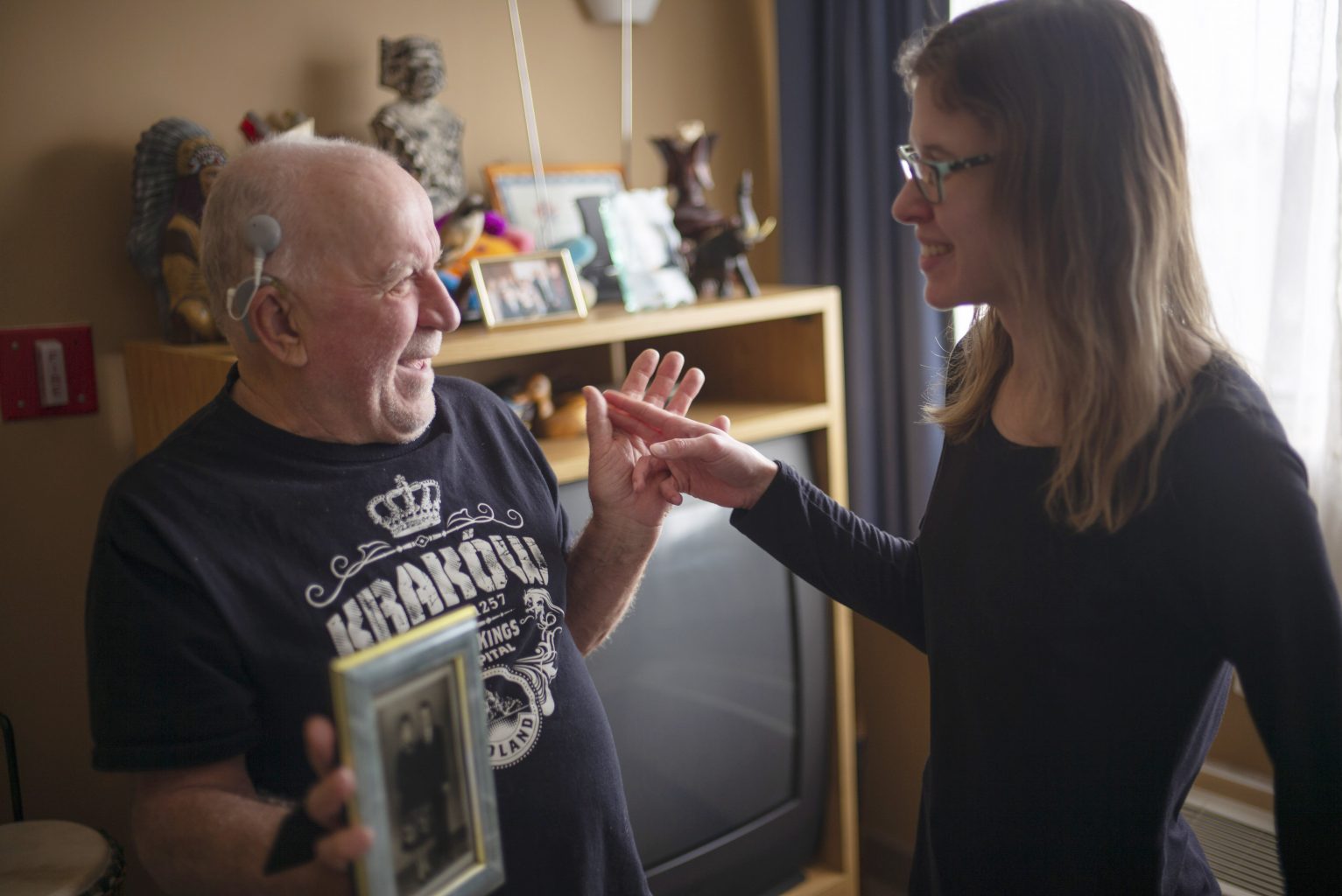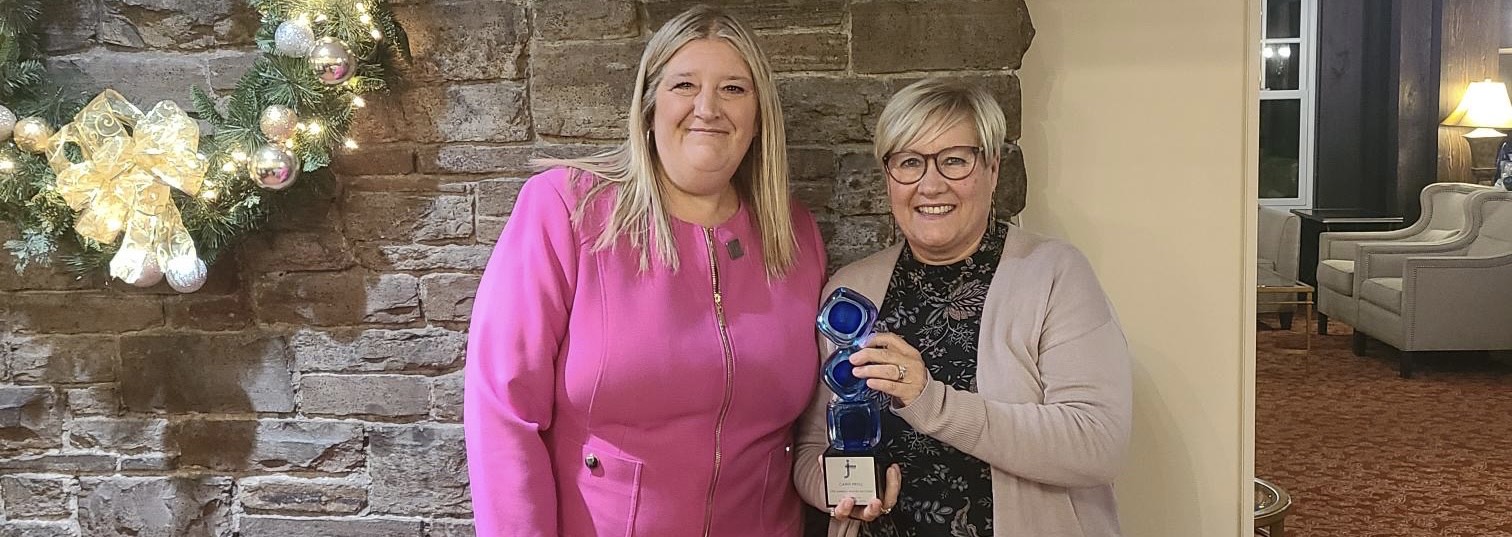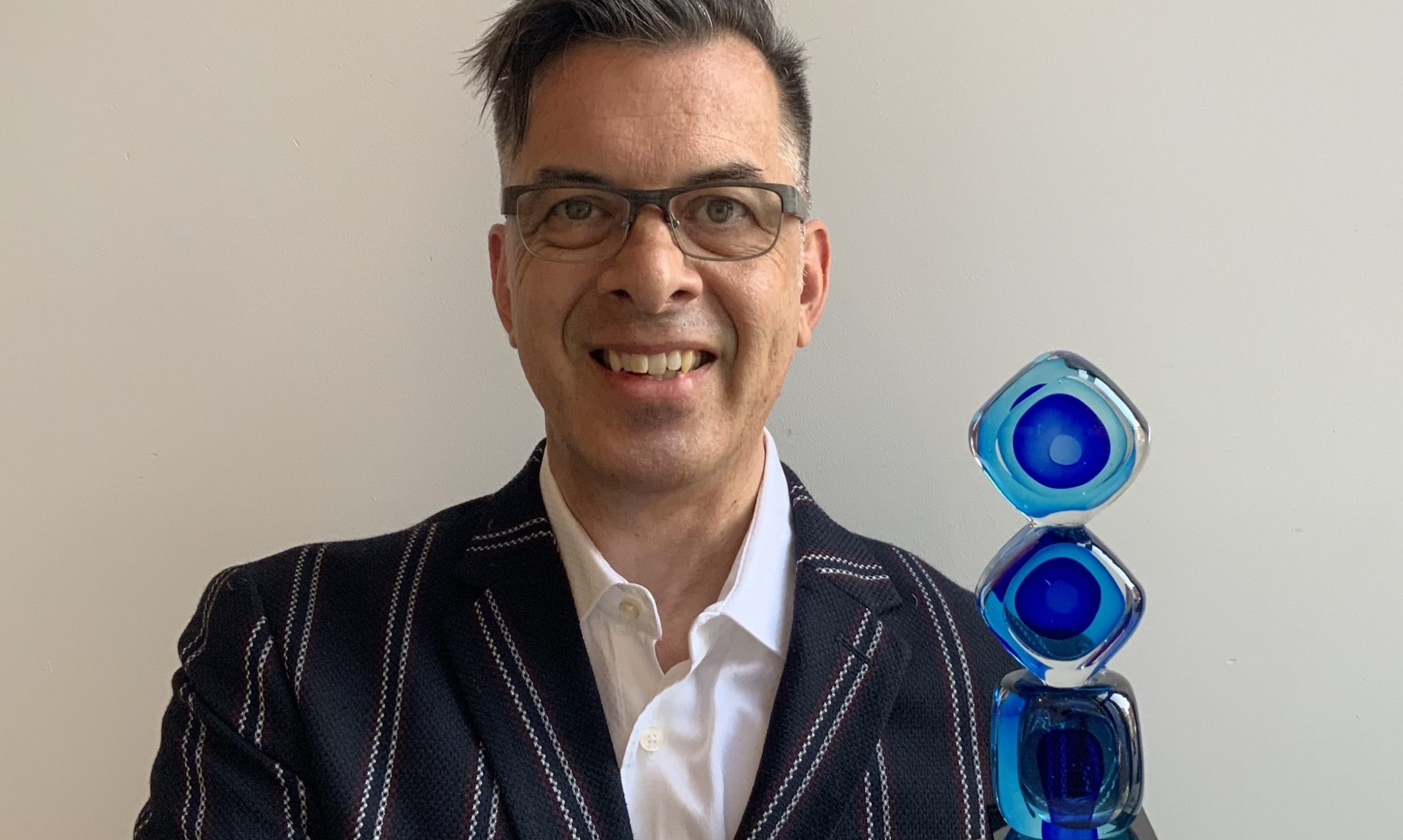June is National Deafblind Awareness Month
To help spread awareness, parks and landmarks across Canada will be yarn-bombed throughout the month of June
Many of us receive information through our eyes and ears, whether from our televisions, conversations with neighbours, headlines on a mobile device, or weather reports on an app.
These seemingly minor bits of information, which most of us take for granted, could present many barriers for a person who is deafblind.
But what is deafblindness? Deafblindness is a disability in which an individual has a substantial degree of loss of both sight and hearing, the combination of which results in significant difficulties in accessing information and in pursuing educational, vocational, recreational, and social goals. Deafblindness is a unique and separate disability from deafness or blindness. An individual with a combined loss of hearing and vision requires specialized services, including adapted communication methods.
Intervenors are professionally trained to provide auditory and visual information to people who are deafblind. Acting as the eyes and ears, an intervenor provides complete information about the environment and surrounding circumstances to the person who is deafblind who is unable to attain this information for him or herself because of a dual sensory loss. By using various modes of communication, they provide opportunities for people who are deafblind to gain independence, pursue goals, have control over their lives/make choices and interact with the environment.
June celebrates National Deafblind Awareness Month, marking the birth month of Helen Keller, unquestionably the most famous person who was deafblind—both deaf and blind.
Helen Keller’s journey is an inspiring story that took her from no communication with the world around her to a life of vision and advocacy, thanks to the support of her intervenor.
She engaged in a seemingly impossible battle to participate and break down barriers in a world some might consider she had lost. Through her actions and achievements, Helen Keller is one of the most powerful symbols of triumph over adversity.
Many people are familiar with the story of Helen Keller, but unaware that her experience with deafblindness is all too real for over 466,420 Canadians who are deafblind, including many who live in Toronto.
For almost 30 years, Canadian Helen Keller Centre (CHKC) has provided affordable housing, as well as intervenor services to Canadians who are deafblind.
With the assistance of intervenors, who act as the eyes and ears of people who are deafblind, Canadians who are deafblind can live more independent lives, accessing their communities in more fulfilling ways.
Jennifer Robbins, Executive Director, CHKC, says, “The disability of deafblindness, which includes all types and degrees of dual hearing and vision loss, can be isolating and restrictive. Our goal at CHKC is to spread awareness of dual sensory losses, and how CHKC and partner agencies across the country are helping meet the needs of these individuals.”
We hope that we will spark a conversation with Canadians about the disability of deafblindness, an often ignored and misunderstood disability. This June, help spread awareness and support our essential programs and services today.








